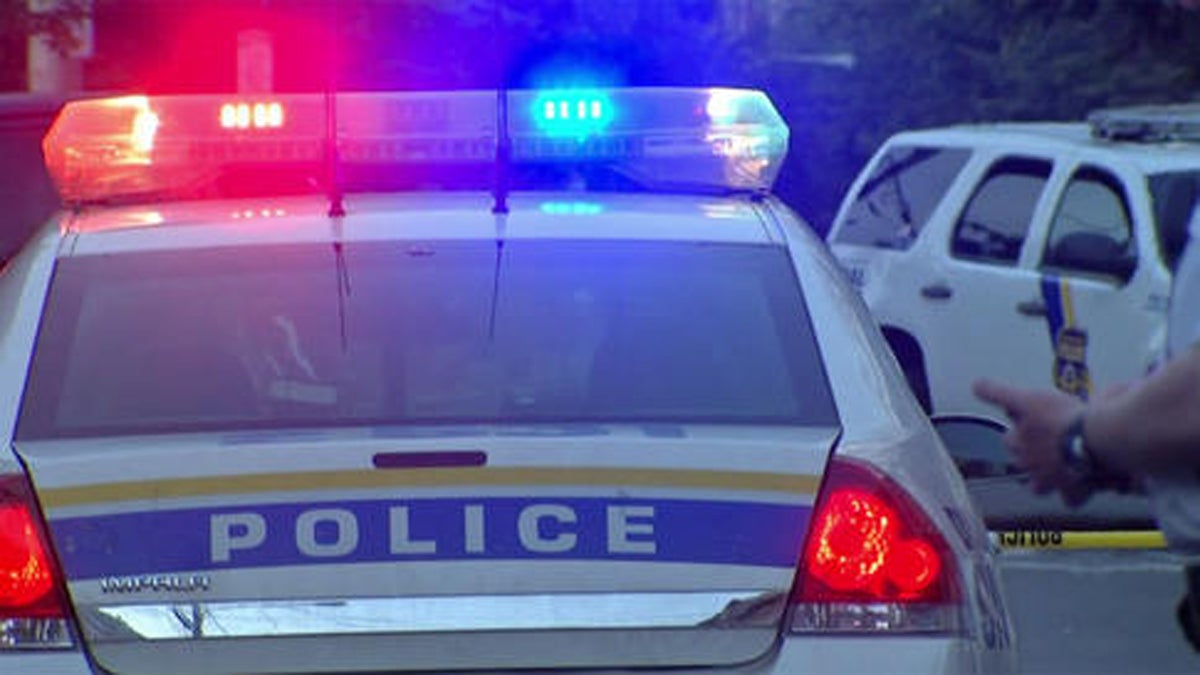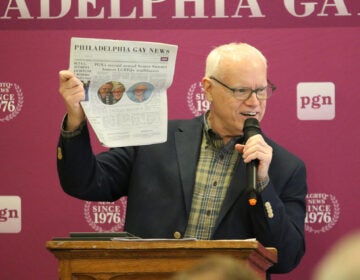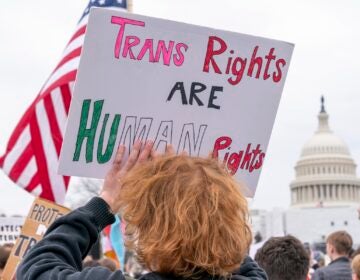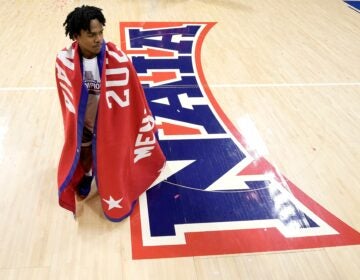Philly police making strides to protect and serve transgender community
The worst threat of violence for the transgender community came from the Philadelphia Police Department. But now we're working to improve that relationship.

Philadelphia police cruiser (Image courtesy of NBC10)
Speak Easy is examining priorities among LGBT communities in the Philadelphia region that persist beyond the issue of same-sex marriage. Seeking diverse perspectives on these issues, NewsWorks is hosting a public forum, “LGBT Priorities Beyond Marriage,” on Sept. 15 at WHYY studios. Registration is free at whyy.org/speakeasy.
—
Being a young transgender woman in the early ’90s in Philadelphia’s Gayborhood was a very different experience from how it is today. The Gayborhood was supposed to be a safe place for the trans community, where we could find refuge among others like ourselves. You would think that our biggest fears back then were drugs or drug dealers or robbery or rape, but you may be surprised to know that, to me and others in the trans community, the worst threat of violence came from the people who were meant to protect us: the Philadelphia Police Department.
When it came to me being abused by the police, there were so many incidents that I couldn’t possibly fit them all here. The constant harassment, berating and physical abuse still affects many aspects of my daily life. The difference now is that I am in a position to do something about it.
I was once arrested on my birthday for a made-up offense. A group of friends had taken me out in the Gayborhood to celebrate. We parked, and as we were all getting out of our cars, two bicycle cops came out of nowhere. “Ren” and “Stimpy” (we had nicknamed them from previous run-ins) confronted us, threw us all up against the wall, placed us all under arrest, and took us to the precinct in their paddy wagons.
Why? They lied and said we were flagging down vehicles, trying to prostitute.
At the precinct, the name calling and torment continued as other officers called their colleagues to come see the trannies. They held us overnight and released us with citations.
For years I suffered this sort of torture. One night, when my best friend and I were leaving the Gayborhood after a few drinks, a cop pushed me to the limit. My friend and I had decided to not walk too far for fear of being harassed, so we stopped at a corner to hail a cab. One of the officers who was always particularly abusive to me pulled up and screamed on his car loudspeaker: “I told you f—ing animals to go the f— home!”
Well, that was it. I hurled curses back at him. The incident escalated to a physical confrontation. Other officers showed up, handcuffed me, and threw me in the back of that same officer’s car. While he drove me to the precinct, he threatened me. He said he would knock all my teeth out. My body would be found behind a dumpster.
After that night, my best friend and I sued the police. My friend was scared and wanted to settle. I would not. At a meeting in City Hall with PPD officials and representatives from the city and mayor’s office, I told them that I would not be intimidated, and if that’s why they called the meeting, it was a waste of their time!
Eventually we did settle, and part of the agreement was mandatory sensitivity training for all police officers working in the Gayborhood. That of course didn’t seem to go so well. I decided I could no longer sit by and allow this to happen to others in my community. I was in a unique position to make a difference.
That was the beginning of my activism and the advocacy work I do today. I now sit on the Police Liaison Committee headed by Deputy Commissioner Kevin Bethel, who is a phenomenal ally. He believes all people should be treated equally and with respect. If there is an incident involving a trans person, we will usually contact one another right away, and he does everything in his power to see it is handled in a way that avoids additional trauma to what is already a traumatized population.
“Ren” is one of the officers on the committee. We actually work together. It took time to adjust from my memories of this cop as completely ignorant, abusive, intolerant and bigoted, to this new supporter and ally of the trans community. I had to be open to giving him a chance to see if he was real or putting up a front. Then I learned he actually volunteered for this committee and has helped start the new gay officers league, even though he is straight. He’s proof that people change and grow.
Sometimes when I’m on the phone with DC Bethel or across the table from “Ren,” I can’t help but think — Wow … how far have I come! And how far have we as a community come! Is everything perfect? No. However, the police abuse is down. And we have Directive 152, which mandates how police officers will treat trans people. I now train PPD cadets how to deal with the LGBT community, but mainly the T. The hard part is getting the “ol’ boys” to follow along, but DC Bethel makes sure that his entire force is on board.
We have much further to go, but it is important to acknowledge our progress.
—
Deja Alvarez is a long time trans advocate, with organizing experience in Baltimore and Philly. She is a founding member of Philly’s Trans* Wellness Project and Sisterly L.O.V.E, organizations working to combat police harassment and violence against trans women, and to provide services for trans women, by trans women.
CORRECTION: A previous photo misidentified Capt. Mike Craighead as Deputy Commissioner Kevin Bethel.
WHYY is your source for fact-based, in-depth journalism and information. As a nonprofit organization, we rely on financial support from readers like you. Please give today.





